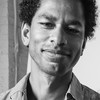The 294th mass shooting in America this year happened Thursday in Oregon at Umpqua Community College. A 26-year-old man with six guns killed nine people and wounded several more. I'm not including his name because he doesn't deserve to be named or remembered—he deserves only to be forgotten. Local Sheriff John Hanlin said as much on television: "I will not name the shooter. I will not give him the credit he probably sought."This man deserves to be erased from history while we mourn and remember and celebrate the victims and the survivors. But so many of us already know his name because journalists are talking about him and his past with family, friends, and mental health professionals. They do this with the best of intentions, of course: Something horrific has happened and people are hungry to learn who did it, and why. It's instinctual—it's human nature—to ask these questions, and it's part of the news media's most basic relationship with the public to try to provide answers. But in naming mass killers over and over and showing their pictures day after day and diving deep into their personal history, are we journalists somehow aiding and abetting these horrible people?For over three years I co-anchored the 3 PM hour at MSNBC, and in that time we covered more mass shootings than I can remember. Over time, I began to wonder what impact I was having. Was I somehow making things worse? Journalists cannot pretend to be a simple window on the world—we are a camera and we impact the world by the things we choose to focus on and how we crop the images. I think it was while covering my fifth or sixth mass shooting that we had on a psychologist who told us that the media figures are often unwitting partners for these killers—they feel left out of society and plan a spectacularly horrific killing that lets them go out in a blaze that they know will be memorialized on TV; they know their name and their image will be wallpapered across the internet for days, if not years. They'll join the roll call of infamous mass killers, a list many troubled young men have memorized.As the expert shrink explained all of that, I realized that I could no longer participate in saying the names of these deranged mass killers over and again because that meant I was participating in the last part of their plan.There is a tricky set of issues for journalists here—news cannot function if fully draped in advocacy or activism, and there is a basic human need for information that we must fulfill. It is necessary to report the name of the killer within 24 hours of the incident—that's part of news media's basic contract with the public. But, for me, after that initial period, repeatedly naming the killer and showing his picture and diving into his background means providing a sort of celebrity for America's worst sort of losers—a perverse sort of fame that they covet. It means participating in a kind of killer porn that draws viewers in but does not truly inform them.The narrative is almost always the same: His classmates say he was a loner. His family says he had mental issues. He acquired the gun legally so no laws could've stopped this. He had a lot of anger toward the world. Meanwhile, somewhere the next boy is watching and dreaming of his face and his name acid raining down on America.When we covered the 2014 shooting at Ft. Hood, which was my seventh or eighth shooting—or maybe it was my ninth—I vowed to be different. I refused to say the killer's name after the first day. I refused to name past killers; I'd just refer to the cities they happened in. And I asked that we do more about the victims and less about the background of the killer.I couldn't be part of some maniac's plan.When the press trains its lens on the life story of the killer, that casts the situation as a personal failing, as something that one individual unleashed. But the situation is also one that sits in the midst of a slew of societal issues. Fixating too deeply on the biography of a killer nudges us away from discussing the American problems that fuel these killings—the prevalence of guns, and the ease with which almost anyone can get one, and the way the NRA and Congress protect gun manufacturers from responsibility for how their products are being used.When we cover mass shootings without discussing America's troubled relationship with guns, we are covering a tree and ignoring the forest all around it. The media can serve America better by talking less about these killers, by naming them less often, by not making them into perverse sorts of celebrities—by erasing them. That alone would not stop mass killings, but it would serve the public better.Follow Toure on Twitter.
Advertisement
Advertisement
